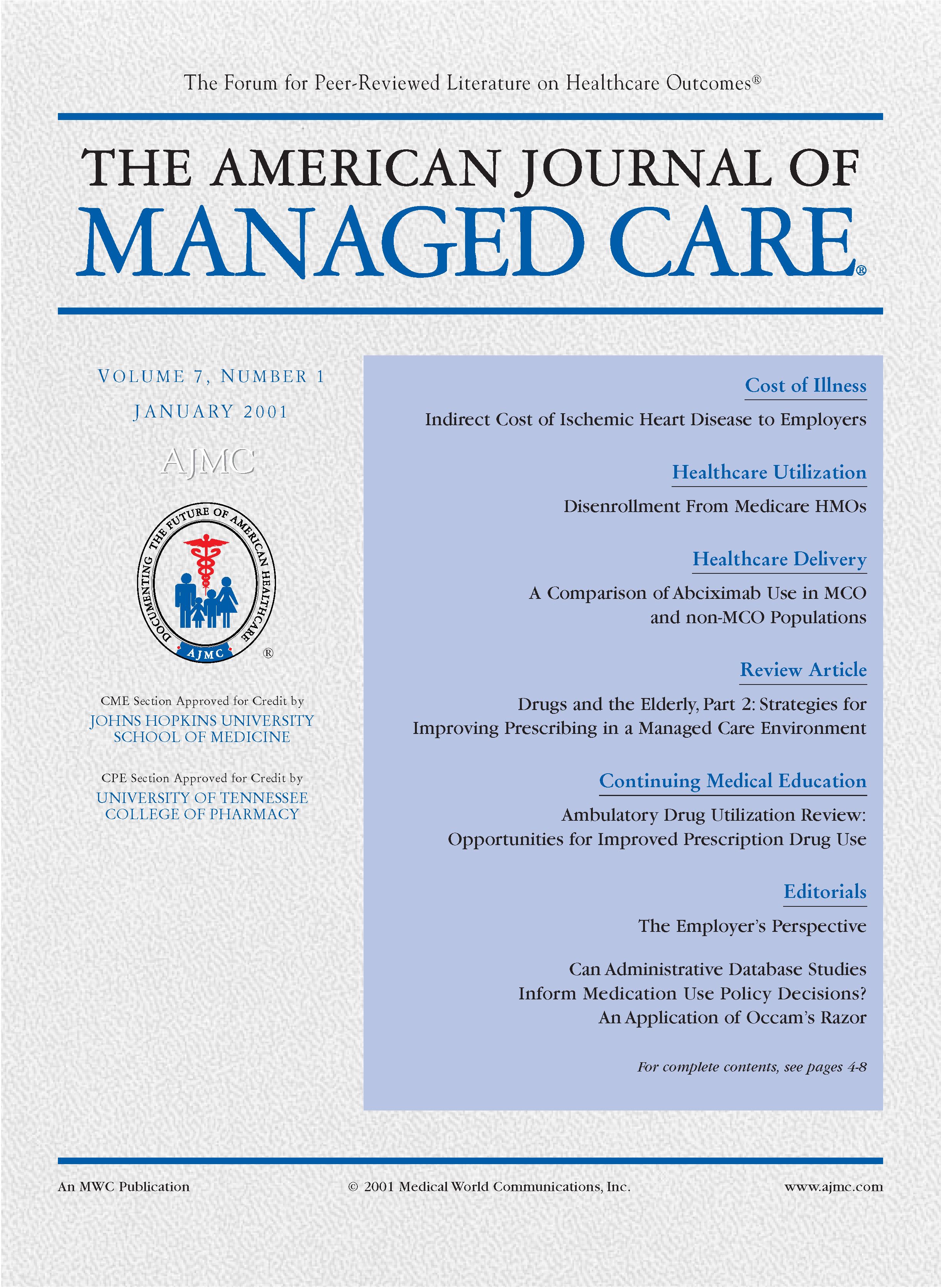- Center on Health Equity & Access
- Clinical
- Health Care Cost
- Health Care Delivery
- Insurance
- Policy
- Technology
- Value-Based Care
Is the Healthcare Workforce a Barrier to Cost Containment?
TO THE EDITOR
I find it very ironic when someone from one profession tries to correct another profession.1 First of all, having wiped out all nursing degree programs,who is going to educate these now cost-effective RNs? Other ADN’s? We all know very well that education doesn’t work that way.
And what about nursing administration? It simply doesn’t work to place people in administration without appropriate training, nor does it work to place non-nurses in nursing administration. Montoya speaks of patients seen by physicians whose treatment could be safely and effectively left to the care of another discipline. In terms of the advanced practice nurse/nurse practitioner, it is largely accepted that the minimum entry level into safe practice is at the master’s degree level of education. It can’t be both ways.
I guarantee that if/when you are sick and in need of nursing care, you will want to have a smart nurse. Nurses can and do save lives every day through their knowledge of illness and the effects and side effects of medications. “Dumbing down” the nursing profession places patients at risk for injury and medication errors. The standard of excellence simply cannot be lowered. I have been in the nursing profession for 16 years and have on numerous occasions seen the unfortunate effects of substandard nursing care by substandard nurses. Trust me, it’s not something that you would want to receive. Having lowered the standard of practice in this way, where will the workforce come from? Potential nurses are already staying away from the profession by the thousands, due largely to the perceived lack of prestige associated with the profession.
Whenever talk of cost-containment arises, nursing care is one of the first activities to come under scrutiny. But what of the pharmaceutical and medical technology industries? Much of the healthcare budget goes to developing newer but marginally advantageous medications and cutting edge technological advancements designed to treat conditions that are largely preventable. Services are duplicated in competing hospitals, only for the sake of competition for the healthcare dollar, and yet costs are driven up for everyone.
During the Crimean War, Florence Nightingale demonstrated that appropriate nursing care, incorporating education in scientific principles, translated into saved lives. She did not invent or pioneer the profession, which has been around for hundreds ofyears, but she did reveal its potential. Since that time, the profession has continued to demonstrate this fact and to evolve according to the needs of the era. However, as with all symbiotic relationships, it is a very fragile one. In this day and age people have many other career choices and, with regards to nursing, they are demonstrating this fact. Nurses are subjected to work conditions that many other professions are not willing to tolerate. Long hours, mandatory overtime, and emotional and psychological distress are part and parcel of the nursing profession. When nursing is devalued, it creates an environment in which ruthless administrators feel justified in allowing substandard nursing care and inadequate staffing. This issue is currently being played out throughout the US. At its best, the nursing profession is not merely a technical job, but an embodiment of the best of human compassion. If we are willing to sacrifice this compassion in hopes of monetary gains, I am convinced that we all stand to pay a greater price than we can know.
Richard Frank, MSN, FNP
Bandon, OR
1. Montoya ID. Is the healthcare workforce a barrier to cost containment? Am J Manag Care 2000;6:971-972.

Quality of Life: The Pending Outcome in Idiopathic Pulmonary Fibrosis
February 6th 2026Because evidence gaps in idiopathic pulmonary fibrosis research hinder demonstration of antifibrotic therapies’ impact on patient quality of life (QOL), integrating validated health-related QOL measures into trials is urgently needed.
Read More
Building Trust: Public Priorities for Health Care AI Labeling
January 27th 2026A Michigan-based deliberative study found strong public support for patient-informed artificial intelligence (AI) labeling in health care, emphasizing transparency, privacy, equity, and safety to build trust.
Read More
Ambient AI Tool Adoption in US Hospitals and Associated Factors
January 27th 2026Nearly two-thirds of hospitals using Epic have adopted ambient artificial intelligence (AI), with higher uptake among larger, not-for-profit hospitals and those with higher workload and stronger financial performance.
Read More
Motivating and Enabling Factors Supporting Targeted Improvements to Hospital-SNF Transitions
January 26th 2026Skilled nursing facilities (SNFs) with a high volume of referred patients with Alzheimer disease and related dementias may work harder to manage care transitions with less availability of resources that enable high-quality handoffs.
Read More

